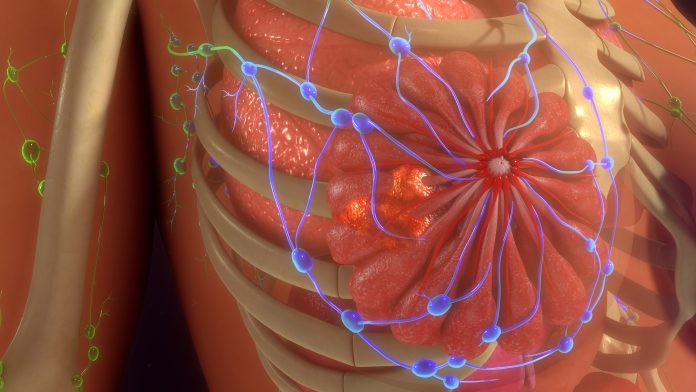
A natural compound, cardamonin, found in the spice cardamom and other plants, could have therapeutic potential for triple-negative breast cancer (TNBC), according to a new study using human cancer cells. The researchers also found that the compound targets a protein, PD-L1, that helps cancer cells elude the immune system. Further, they found that cells from different races may respond differently to cardamonin because of genetic variations.
Patricia Mendonca presented these results at the American Society for Investigative Pathology annual meeting last week in Philadelphia. Mendonca is assistant professor and research analyst at Florida A&M University in Tallahassee.
“This is the first study to describe cardamonin’s inhibitory effect on the expression of PD-L1, which is relevant for the treatment of triple-negative breast cancer,” said Mendonca. “These findings [also] add support to other research that has shown differences in the tumor microenvironment between African and non-African Americans.”
About 10% to 15% of breast cancers are triple-negative. These tumors don’t have receptors for estrogen or progesterone and don’t make excess amounts of HER2. As a result, they are particularly hard to treat, tend to be more aggressive, and have a higher mortality rate than other breast cancers. Further, they are particularly aggressive in African American patients.
“It has been challenging to develop a targeted therapy for triple-negative breast cancer that is safe and effective at the same time,” said Mendonca. “Because of this, there is a critical need to investigate medicinal plants as a new way to combat this cancer.”
She told Inside Precision Oncology that she’s been researching this particular compound for a while. There were previous reports it has effects on colorectal and prostate cancer. The first affect her team looked at was in neurodegeneration. “In both cases the compound is targeting oxygenative stress, which is implicated both in cancers and neuroinflammation.”
The compound also appears safe. “The fact that cardamonin has been used for centuries as a spice and, more recently, as a supplement shows that its intake is safe and may bring health benefits,” said Mendonca. “Our research shows that cardamonin holds potential for improving cancer therapy without as many side effects as other chemotherapeutic agents.”
For the new study, the researchers investigated how cardamonin affected the expression of the programmed cell death ligand 1 (PD-L1) gene, which is overexpressed on tumor cells during breast cancer progression and plays a critical role in helping breast cancer cells evade the body’s immune system.
Programmed cell death protein 1 (PD-1) inhibitors and PD-L1 inhibitors are checkpoint inhibitors. They are used in treating several types of cancer already and the world market is currently estimated to be worth just over $30 billion
These researchers used two genetically different triple-negative breast cancer cell lines — one derived from women with African American ancestry and the other from women of European origin (Caucasian). They found that cardamonin treatment caused a dose-dependent decrease in cell viability in both cell lines. But it reduced PD-L1 expression in the Caucasian cell line but not the African American cell line, indicating that cells from different races may respond differently to cardamonin because of genetic variations.
The researchers caution that this research is still in progress. They plan to perform more studies in both cells and animals to confirm the efficacy of this compound before it is tested in people. They also want to explore other mechanisms that may be involved in cardamonin’s anti-cancer properties.
Mendonca adds that in her lab alone almost a dozen other natural compounds are being tested as anti-cancer agents.













